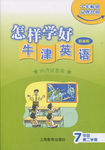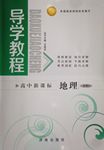题目内容
People use their mouths for many things. They eat, talk, shout and sing. They smile and they kiss. In the English language, there are many expressions using the word "mouth". But some of them are not so nice.
For example, if you say bad things about a person, the person might protest and say "Do not bad mouth me."
Sometimes, people say something to a friend or a family member that they later regret because it hurts that person's feelings. Or they tell the person something they were not supposed to tell. The speaker might say: "I really put my foot in my mouth this time." If this should happen, the speaker might feel down in the mouth. In other words, he might feel sad for saying the wrong thing.
Sometimes when one person is speaking, he says the same thing that his friend was going to say. When this happens, the friend might say: "You took the words right out of my mouth!" Sometimes a person has a bad or unpleasant experience with another person. He might say that experience "left a bad taste in my mouth." Or the person has possibly had a very frightening experience, like being chased by an angry dog. He might say: "I had my heart in my mouth."
Some people have lots of money because they were born into a very rich family. There is an expression for this, too. You might say such a person "was born with a silver spoon in his mouth". This rich person is the opposite of a person who lives from "hand to mouth". This person is very poor and only has enough money for the most important things in life, like food.
46. When a man says "I had my heart in my mouth", usually he means he was_______.
A. excited B. frightened C. surprised D. satisfied
47. Your best friend Tony said what you were going to say, you might say: "_______."
A. You were born with a silver spoon in your mouth
B. You really put my foot in my mouth
C. You really left a bad taste in my mouth
D. You took the words right out of my mouth
48. Which of the following might be the best title for this passage?
A. Different Uses of Mouth B. People and Their Mouths
C. Expressions about Mouth D. The Importance of Mouth
BDC

 怎样学好牛津英语系列答案
怎样学好牛津英语系列答案 导学教程高中新课标系列答案
导学教程高中新课标系列答案Every time you turn on the television or take a ride in a car ,you could be adding to a problem called acid rain(酸雨). In this article, you’ll learn how acid is created, and how it affects us, and more importantly, what we all can do to prevent it.
How is acid rain created?
When people use fuels(燃料), such as coal and gasoline, poisonous gases are given off. When these gases mix with rain, acid rain forms. Many power stations burn fuels in order to create the electricity(电) that we use in our homes and offices every day. Cars and trucks also send these gases into the air when they burn gasoline .When rain mixes with these gases, harmful things called acids form. This is acid rain.
How does acid rain affect us?
Acid rain damages(毁坏)everything that it touches. It poisons our rivers, ponds, lakes, and oceans along with all the life in them. It pollutes our soil and crops, harms trees, and can even kill fish and plants. Acid rain also eats away at buildings.
How can we prevent acid rain?
We need to cut down on the pollution that gets into our air. Turn off lights, television, and other electrical appliances if you are not using them, Walk or take a bike whenever possible. If you are travelling a long distance, take a bus or train to save fuel.
As research shows, acid rain harms our environment. But people everywhere can take small steps now to help protect our environment for future generations.
【小题1】When power stations burn fuel, _______.
| A.acid rain form | B.air pollution is caused |
| C.noise pollution is caused | D.acid rain gets heavier |
| A.Go to school on foot or by bike if we can. |
| B.Go to bed earlier in order to use less electricity. |
| C.Travel by bus to prevent acid rain. |
| D.Turn off the television on rainy days. |
| A.Preventing Acid Rain | B.Forming of Acid Rain |
| C.Acid rain, Heavy Rain | D.Acid Rain, Killer Rain |
“Cool” is a word with many meanings. It means a little cold at first. As time changes, the word gets many different meanings. We can use “cool” when we talk about something wonderful or somebody looking smart. For example. When you see a beautiful and expensive car in the street, you can say, “It is cool.” You may think the popular singer Jay Chow is cool. You can also use the word to mean something new and surprising. Here is an example. One day a teacher took the students to a farm and then asked them to write something about the visit. One of her students just wrote, “The farm is so cool.” Because he thought “cool” was the best word to show what he saw and felt. It also shows some people don’t have enough words. Without “cool”, they seem to have no other words to use. Can you think of any other words like “cool: with so many meanings? If you can they are also very “cool”.
【小题1】The meaning of the word “cool” ______.
| A.is always the same | B.changes a lot |
| C.is “wonderful or smart” | D.is “new and surprising” |
| A.a little cold | B.a little hot | C.new and surprising | D.good-looking |
| A.excited | B.happy | C.surprised | D.worried |
| A.Meanings of the word “Cool” | B.“Cool”, the Best Word to Use |
| C.People use “Cool” Too Much | D.“Cool’ Is A New Word |
Different colours can affect us in many different ways; that’s according to Verity Allen. In a new programme “Colour me Healthy”, Verity looks at the ways that colours can influence how hard we work and the choices we make. They can even change our emotions and even influence how healthy we are.
“Have you ever noticed how people always use the same colours for the same things?” says Verity. “Our toothpaste is always white or blue or maybe red. It’s never green. Why not? For some reason we think that blue and white is clean, while we think of green products(产品)as being a bit unpleasant. It’s the same for businesses. We respect a company which writes its name in blue or black, but we don’t respect one that uses pink or orange. People who design(设计)new products can use these ideas to influence what we buy.”
During the programme, Verity studies eight different colours, two colours in each part. She meets people who work in the colour industry, from people who design food packages, to people who name the colours of lipsticks. Some of the people she meets clearly have very little scientific knowledge to prove their ideas, such as the American “Colour Doctor” who believes that serious diseases can be treated successfully by the use of coloured lights. However, she also interviews real scientists who are studying the effects of green and red lights on mice, with some surprising results.
Overall, it’s an interesting show, and anyone who watches it will probably find out something new. But because Verity goes out of her way to be polite to everyone she meets on the programme, it’s up to you to make your own decisions about how much you should believe.
1.What’s Verity’s opinion about colours?
|
A.Colours help people choose products. |
|
B.Different people prefer different colours. |
|
C.Colours have influences on people in many ways. |
|
D.People working in colour industry know little about colours. |
2.What can you infer from Paragraph 2?
|
A.Colours influence people’s feelings and opinions. |
|
B.People get ideas for new products from colours. |
|
C.New products are popular because of colours. |
|
D.Most companies prefer bright colours. |
3.The underlined part “goes out of her way” probably means ______.
|
A.feels very pleased |
|
B.makes a special effort |
|
C.goes on in her own way |
|
D.carries on very slowly |
4. What’s the passage mainly about?
|
A.How people use colours. |
|
B.How colours influence people. |
|
C.What happens in a programme. |
|
D.What makes a programme believable. |
